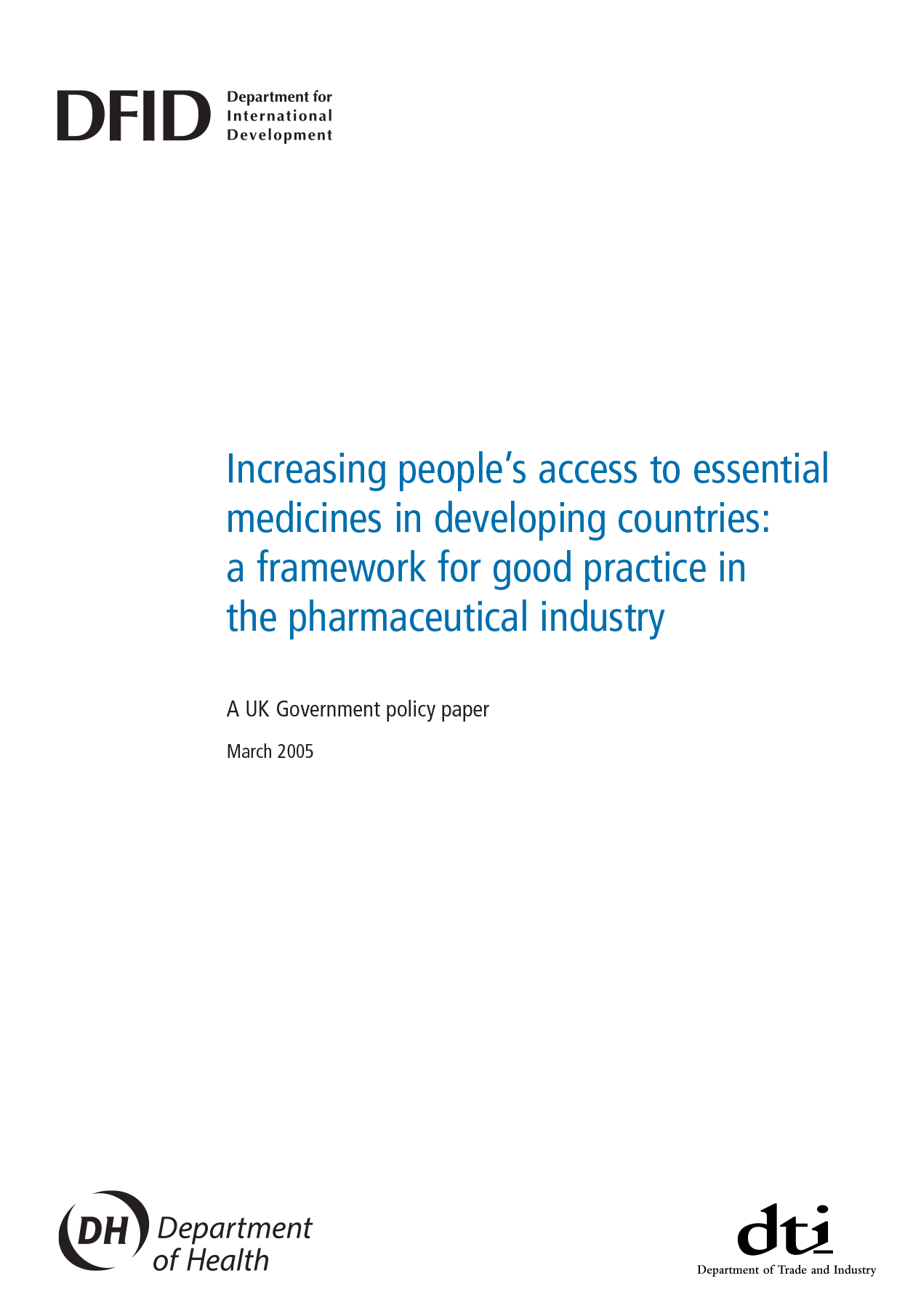
Resource Library
Increasing people's access to essential medicines in developing countries: a framework for good practice in the pharmaceutical industry
Pharmaceutical companies should use differential pricing to increase access to their medicines DFID / Department for International Development (DFID), UK , 2005. This document, from the UK Department of International Development, describes the current situation regarding access to essential medicines in developing countries, and aims to provide guidance to pharmaceutical companies on how they can help to improve this situation. It reviews efforts by governments and the pharmaceutical industry to provide essential medicines and explains the obstacles to access that have persisted. It finds that donations do not provide a solution to the general long-term needs for essential medicines, because companies cannot give away their products indefinitely and in significant quantities. By contrast, the document argues that differential pricing of essential medicines for developing countries is economically and commercially viable. It suggests that pharmaceutical companies are making significant progress in increasing access to their medicines, but argues that they could do more. It recommends that they engage in widespread differential pricing, especially in the poorest countries, to support the development of viable markets. They could also increase research and development investment for diseases affecting developing countries, including through public-private partnerships. In order to support these efforts by the industry, health systems need to be strengthened, financing from national and international agencies for the purchase of medicines increased, and more assistance given to research and development.
Resource Type : Report
Country :
Year : 2006-07-18T16:15:00
Language : English
Project : SHOPS


